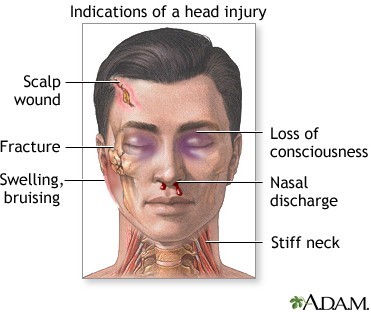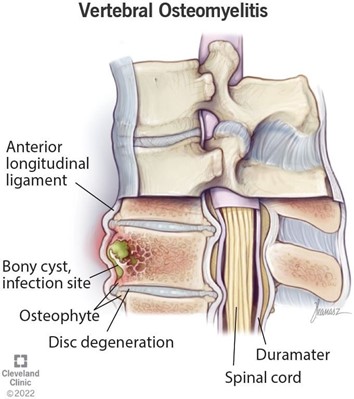A nurse is collecting data from a client who has a traumatic head injury. Which of the following findings should the nurse report to the provider immediately?
Sudden sleepiness
Headache
Diplopia
Slight ataxia
The Correct Answer is A
The nurse should report sudden sleepiness to the provider immediately if the client has a traumatic head injury. Sudden sleepiness can indicate an increase in intracranial pressure, which can be a life-threatening complication of a head injury.
Headache, diplopia, and slight ataxia are also important findings that the nurse should report to the provider. However, these findings are not as urgent as sudden sleepiness. Headache can be a common symptom following a head injury. Diplopia is double vision and can indicate cranial nerve damage. Slight ataxia is unsteadiness or lack of coordination and can indicate neurological damage.

Nursing Test Bank
Naxlex Comprehensive Predictor Exams
Related Questions
Correct Answer is C
Explanation
The priority intervention for the nurse to implement for a newly-admitted client who has acute osteomyelitis is antibiotic therapy. Osteomyelitis is an inflammatory condition of bone secondary to an infectious process¹. Antibiotics are the primary treatment option and should be tailored based on culture results and individual patient factors.
a. Optimal nutrition and hydration is important but not the priority intervention.
b. Surgical debridement of necrotic tissue may be necessary but is not the priority intervention.
d. Antipyretic therapy may be necessary but is not the priority intervention.

Correct Answer is ["C","D","E"]
Explanation
Keeping a night light on in the client's room and bathroom can help reduce the risk of falls by improving visibility and orientation at night. Placing the bedside table within the client's reach can help reduce the risk of falls by making it easier for the client to access necessary items without having to get up and move around. Locking the wheels on beds and wheelchairs during transfers can help reduce the risk of falls by providing stability and preventing unwanted movement.
Keeping the bed at a comfortable working height is important for the nurse's comfort and safety while providing care, but it does not directly reduce the risk of falls for the client.
Administering a sedative at bedtime may help the client sleep, but it can also increase the risk of falls by causing drowsiness and disorientation.
Whether you are a student looking to ace your exams or a practicing nurse seeking to enhance your expertise , our nursing education contents will empower you with the confidence and competence to make a difference in the lives of patients and become a respected leader in the healthcare field.
Visit Naxlex, invest in your future and unlock endless possibilities with our unparalleled nursing education contents today
Report Wrong Answer on the Current Question
Do you disagree with the answer? If yes, what is your expected answer? Explain.
Kindly be descriptive with the issue you are facing.
